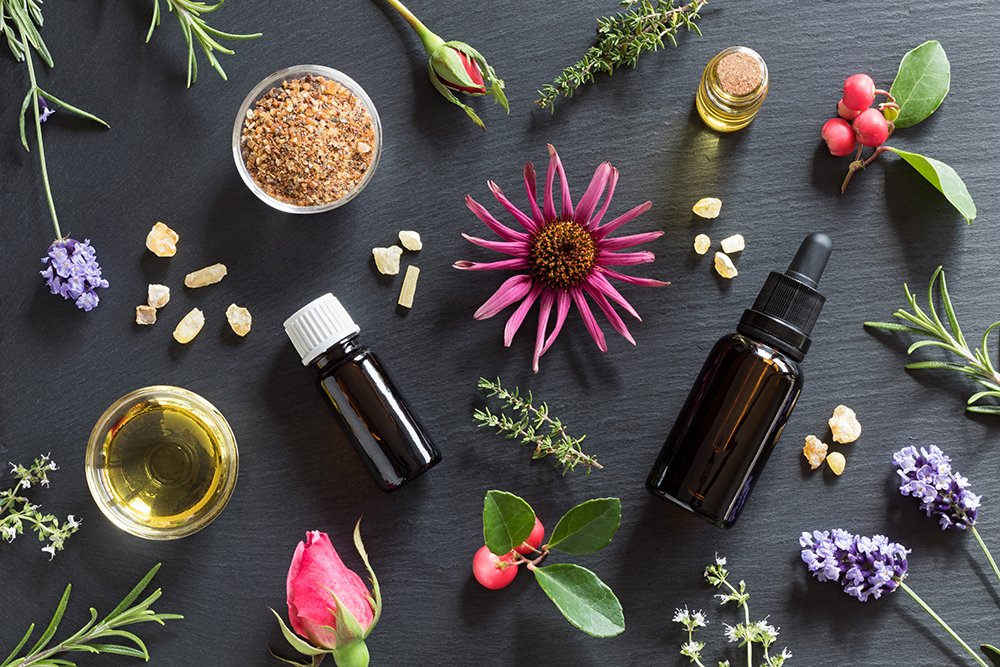Herbs and essential oils can improve health and alleviate illnesses without any side effects on the body through dietary changes.
While buying herbal supplements, it is advisable to check for accurate labels on remark products. Also, try combined usage with dietary supplement types that match your symptoms and closely observe your body’s reaction.
What Are Herbs?
An herb is a plant that has medicinal or culinary value, being included in cooking to improve flavor or nutrition. Without adding extra calories or salt, herbs enhance the taste of meals; some better ones even offer better health scale results.
Organic medicines are prepared by pulling out medicinal plant leaves, stems, flowers and seeds, and packaging them in pill form. In contrast to prescription medications, herbal supplements have a number of benefits, including being safer and more effective, but certain conditions involving some herbs and medications can be dangerous.
A local market and grocery store sells a variety of herbs which are usually available as dried extracts for cooking purposes, or teas, tinctures and liquid extracts herbs for herbal medicine. A tea is prepared by steeping the herbal plant in hot water, whereas tinctures or liquid extracts are more concentrated forms sold as drops or pills.
A good portion of herbs are simple to grow and can be kept in your garden or in a pot on your windowsill. Be playful with adding herbs into recipes, or if your supple enough, grow some to incorporate into your own garden. Wasting opportunities to include herbs into your cooking is tough; these plants are far more useful than you can think, and before too long, you’ll be cultivating fresh herbs all year round!
Using Herbs to Heal
Herbal medicine is built with herbs that act as a remedy to problems faced in today’s world. Herbs can be used to treat a disease, focus muscles, boost energy or shed weight – all the while being natural and nondestructive. Herbalist users should bewatful when using holistic medicine, as it’s important to use it in a safe manner so there is no harm done.
A lot of herbal medicines have multiple ingredients to help symptoms or conditions in several ways. For example, echinacea has many components that help to ease cold symptoms, and chamomile has anti-inflammatory and carminative effects. While some herbs, such as chamomile can be dried and added into tea blends, other herb preparations like aspirin can come in the form of liquid extracts.
Unlike pharmaceutical drugs, herbal medications do not require extensive testing by the health authority before they can be sold. Because of this, it is important that you get the right information from these herbs from reliable places and also let your doctor know in case you are decided on using some herbal treatments.
Like for regular medications, herbal medicines should also be handled with care because some of them may contain toxic ingredients that are potentially potent, such as digitalis which is extracted from foxglove and should only be taken with a doctor’s prescription.
Herbs as Food
Let me start by saying that herbs, whether fresh or dried, are an irreplaceable component in every chef’s pantry as they add flavor to every meal. Fats and salt are unnecessary when cooking sweet dishes or fresh beverages, and fresh herbs need no extra help when it comes to sure and savory meals, all while possessing higher levels of antioxidants than most foods!
Since volatile herbs lose their flavor and appealing scent swiftly when exposed to heat, I recommend adding them towards the end of cooking or right before serving in order to maintain their beneficial properties. However, some herbs like thyme, rosemary, and bay benefit from being steeped in together with the rest of the ingredients in soups and stews as this helps their flavors blend better. Over time, the blend of flavors becomes more intense.
Salads showcase delicate herbs like parsley, chives, sage, and mint, which are ideal for garnishing or dressings, eating raw, and robust herbs sage, rosemary help thyme benefit meat and vegetable dishes.
acclaimed specialists have always acknowledged the usage of herbs as medicine produced and grown from the comfort of one’s home. ‘Natural Remedies Guide: Ancient Wisdom for Modern Health’ bridges the gap of modern research, over-the-mill spiritual teachings and eastern intelligence blended with herbal remedies that have served to heal the proliteriat for centuries. It brings you back in touch with the herbal practices that ensures the populace are spirited, immortal and youthful.
Seasoned Herbs for Each and Every Garden
There is a wide variety of herbs for each and every season which are perfect for every garden. Unlike other plants, annual herbs have the best perks as they plants, flower and yield seeds in a single year allowing an endless supply of leaves. Some well-known examples of annual herbs are cilantro, dill, and parsley. Cilantro is known for its vibrant green leaves and delicious seeds, dill is great in pickles and seafood and finally parsley is widely known as a dish garnishing herb.
Perennial herbs have a lifespan of two or more years, which makes it possible for them to produce continuously without needing to be replanted every year. Delicious thyme which is a perennial herb and can add a lemony touch to soups, stews, and vegetables, along with Rosemary which boasts of fragrant green stems and glossy leaves and can live anywhere between 15 to 25 years. Furthermore, oregano can also be grown as it goes well with any dish that has grilled meat.
This guide reveals the history and future of herbal science medicine and its excelsior healing botanicals, also known as herbs, provided by mother nature, through years of spirituality, natural health science secrets, and recent research.




